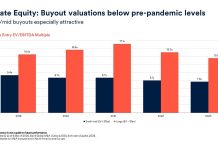
Directors of distressed businesses in the South could avoid personal liability for losses to creditors if they get professional advice early on.
They should seek help from qualified insolvency experts as soon as it becomes apparent there is a question mark over the financial ability to continue trading.
The issue of when to call in advisers has been thrown into sharp relief by a recent high-profile High Court case involving Portsmouth building contractor Ralls, which collapsed in 2010 after 119 years due to bad weather and costly contract snags.
It was alleged in the civil case that the directors continued to trade wrongfully and should be liable for subsequent losses incurred by creditors.
That claim was rejected by Mr Justice Snowden at the Royal Courts of Justice.
He stated in his judgment: “Standing back, whatever other criticisms can be made of the manner in which the Directors conducted the business of the Company between 31 August 2010 and 13 October 2010, I think it is entirely plausible that such continued activity did not cause loss to the Company overall or worsen the position of the creditors as a whole.”
The directors of Ralls contended that throughout the relevant period, from the end of July 2010, they were “taking steps which had a reasonable prospect of rescuing the company and avoiding an insolvent liquidation”.
Although not involved in the case, Greg Palfrey, an insolvency practitioner who heads up the restructuring and recovery services at Smith & Williamson, the accountancy, investment management and tax group, said the Ralls case shows the importance of directors getting professional advisers in as soon as possible.
Greg, who works out of the South Coast office in Southampton, said: “The risks can be greatly reduced by some appropriate professional advice at an early stage.
“Advisory cost is usually seen as the deterrent issue to directors on the ropes. For instance, ‘I do not have the money to pay my suppliers let alone an insolvency professional,’ is often said.
“Some directors bury their heads in the sand. But if that advice might end up safeguarding your family home surely it is money well spent, especially if you would not be criticised for obtaining such advice?
“In fact, as far as a judge is concerned, it could be crucial should the issue arise in court.
“The Ralls case has shown that following such advice from a qualified professional could significantly reduce the potential for having to make a substantial, or indeed any, contribution to losses. However, a director who takes no advice can be liable personally for losses to creditors.
“Directors are not clairvoyant and, whilst the legislation states that directors should take ‘all steps necessary to reduce the risk to creditors’, a common-sense approach discussed openly with a qualified insolvency practitioner, whose advice and views are followed, should reduce the risks enormously and take much of the stress out of the situation.”
Greg added: “Little thought is given to the stress that many owners/directors suffer, in some cases for prolonged periods of time when trading on. It can feel like there is no one to turn to for support or guidance and it can be a very lonely place.
“We are happy to see directors at very short notice to run through the risks and options, given the circumstances we find.”
According to the High Court report, Ralls’ last audited accounts, ending October 2008 and signed by auditors in August 2009, showed the company made a profit after tax of £202,792 on a turnover of about £9.2 million. It had net assets of £365,376.
Greg said: “Ralls went from a strong trading position to a terminal one in less than 24 months. It demonstrates just how easy it is for the wheels to fall off a hitherto good business.”
Ralls was placed into administration in October 2010 and later liquidated.




















